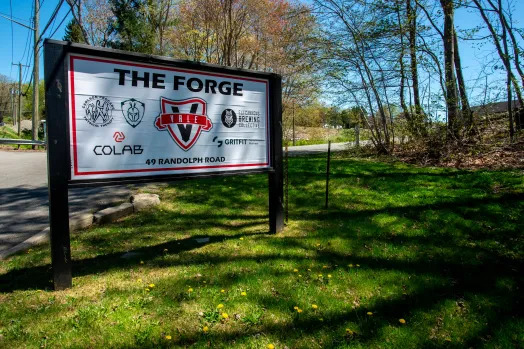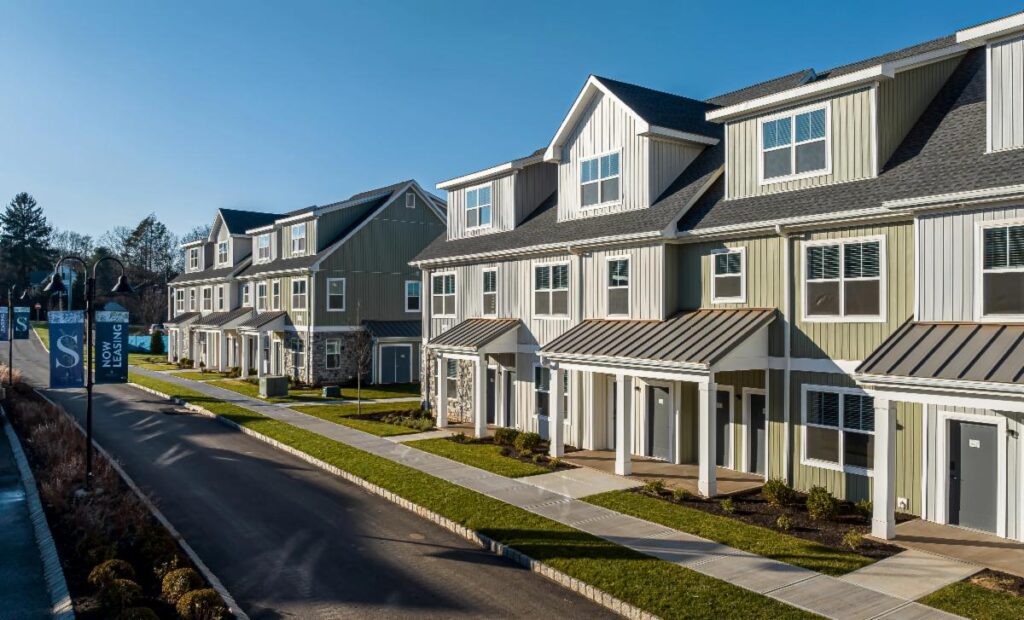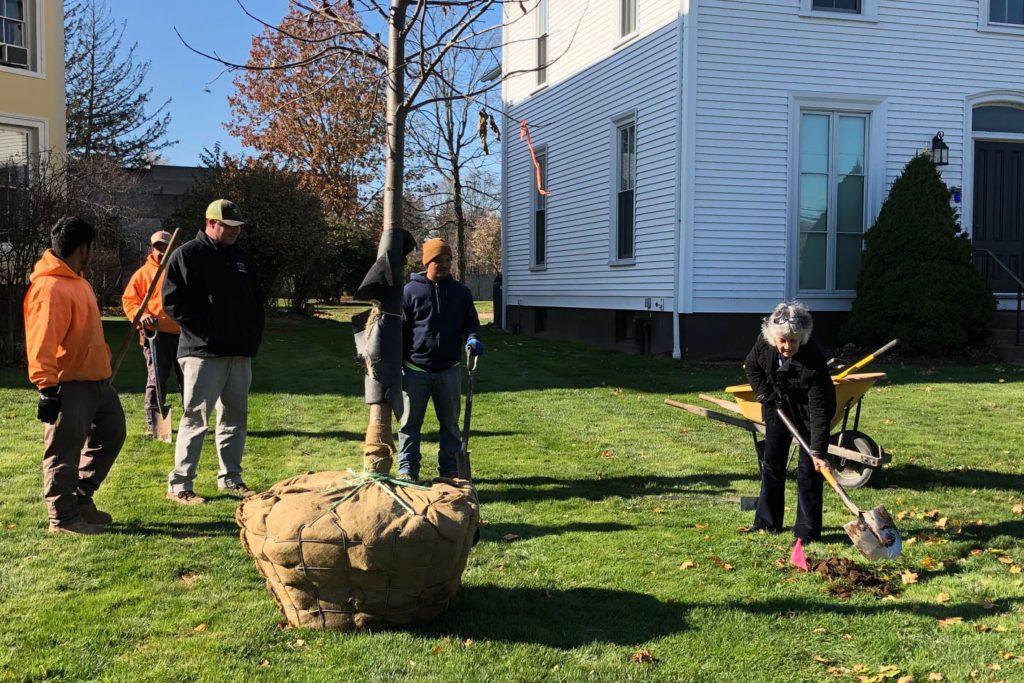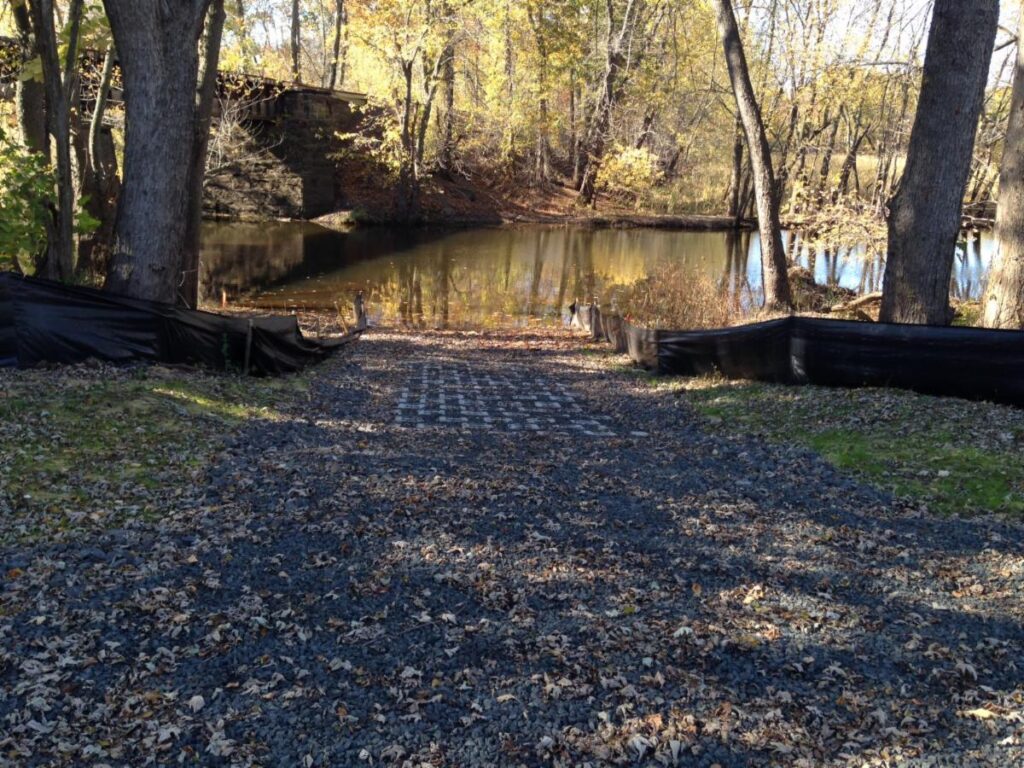Economic Development Newsletter
May 2025
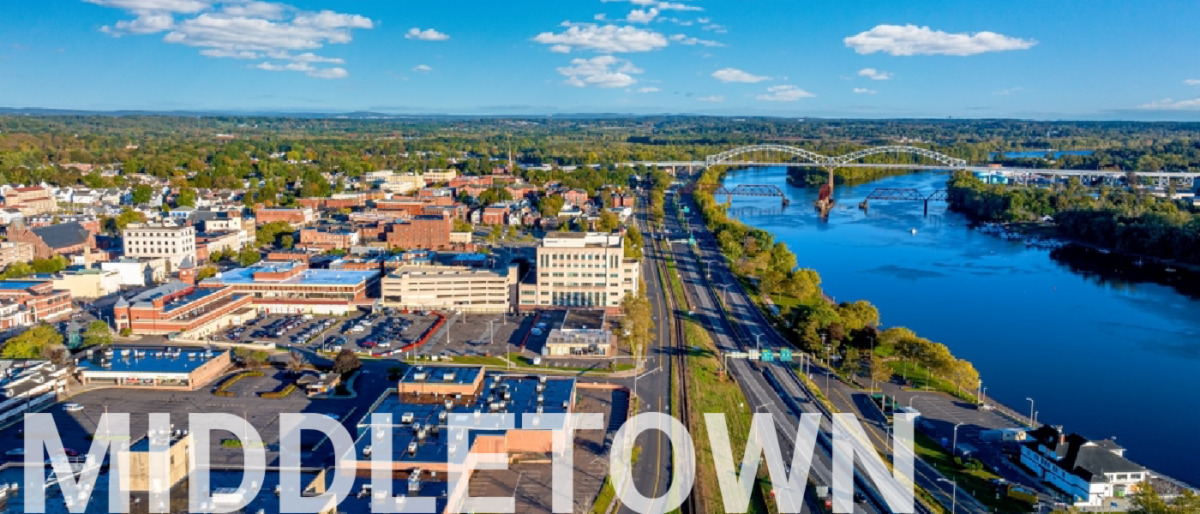
MIDDLETOWN, CONNECTICUT
Originally incorporated in 1650 by English settlers as Mattabeseck, named after the local Wangunk village, Middletown was renamed shortly after. When Middlesex County was formed in 1785, Middletown was designated as the county seat until the county government was abolished in 1960.
Middletown was established as a bustling trading port, and evolved into a prominent destination for higher education with the founding of Wesleyan University in 1831. The Industrial Revolution further transformed the city into a prosperous industrial hub. Products manufactured in Middletown included elastic webbing, water pumps, textiles, marine hardware, typewriters, swords, and firearms.
Today, Middletown stands as a vibrant community and a destination for family and friends to gather, dine, and participate in the arts and culture. Downtown Main Street – America’s "Most Romantic Main Street" as designated by the National Trust - is bustling with international restaurants, shops, entertainment, and family-friendly spots, and the city hosts the largest Pride event in Connecticut.
TOWN STATS
General
Current Population: 47,646
Median Age: 39
Median Household Income: $73,979
Economy
Top Industries
1. Health Care and Social Assistance
2. Government
3. Manufacturing
4. Transportation and Warehousing
5. Retail Trade
Housing
Median Home Value: $279,500
Median Rent: $1,392
Housing Units: 22,165
From 2024 Town Profiles courtesy of AdvanceCT and CT Data Collaborative.
Economic Development Highlights
The former CL&P property on Randolph Road has been redeveloped and is now home to The Forge, a health and wellness-focused complex. Vale Sports Club, a youth soccer organization, has built one indoor field and two outdoor fields that bring sports and community together. Joining Vale are Carlson Procare Physical Therapy, Eli Cannons Brewing Collective, GritFit gym, CoLab 49 coworking center, Paladin Property Management, and an ice cream shop.
Now leasing, Springside Middletown is a $100 million, 486-unit apartment and townhouse community situated on a 48-acre site on Newfield St. The property also includes private offices, conference rooms, and a coworking space, along with a fitness facility, pickleball courts, a swimming pool, and connections to walking trails.
Business growth on Middle Street with new building additions planned for Shelco, a manufacturer of filtration systems, and Aztec, a managed office technology provider.
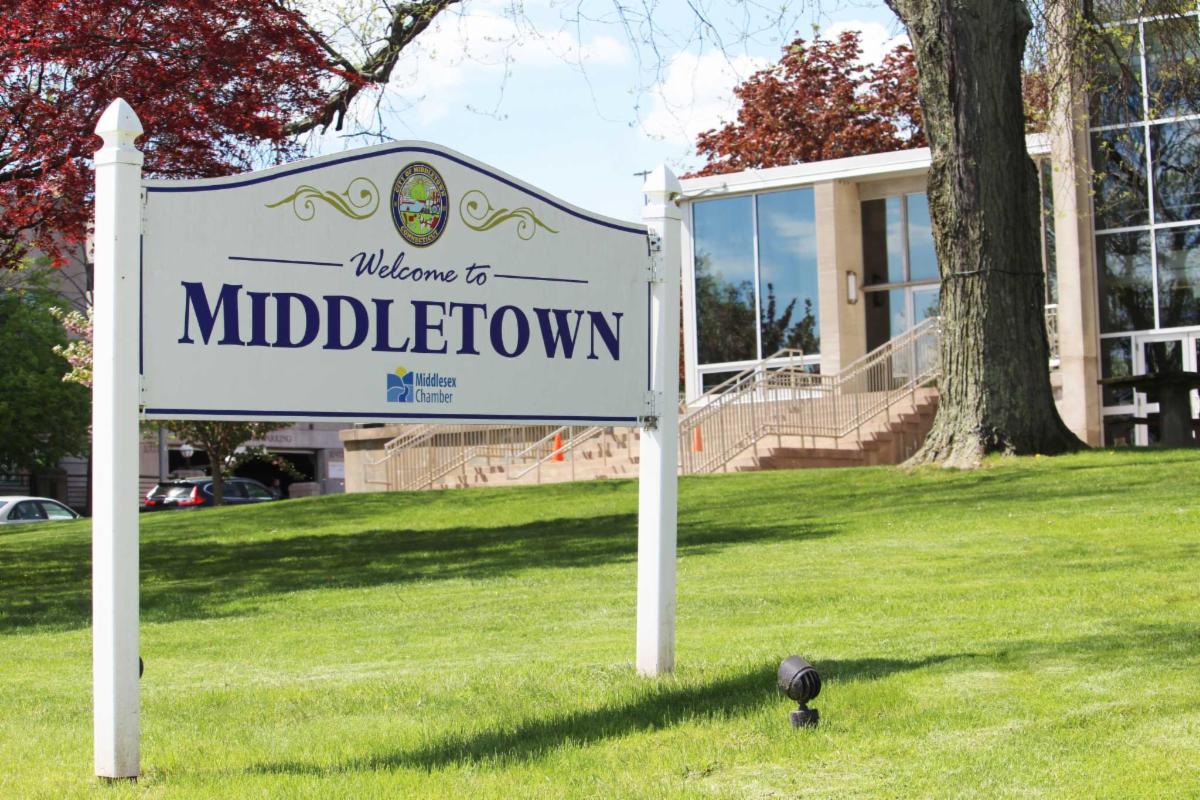
Christine Marques, Director, Economic and Community Development
Christine Marques joined Middletown as the city’s first female director of economic and community development in July 2023, bringing nearly two decades of experience in construction and economic development to her role. A civil engineer, Christine grew up in Middletown and previously worked for the Connecticut Department of Economic and Community Development for fourteen years as a building construction project supervisor.
Christine and her team are working on a range of projects, including the city’s master plan for the Connecticut Riverfront redevelopment, which aims to connect Main Street to the waterfront; the removal of lights on Route 9 in collaboration with the CT DOT; and various small and large-scale development projects to ensure alignment with the diverse communities and neighborhoods in the city.
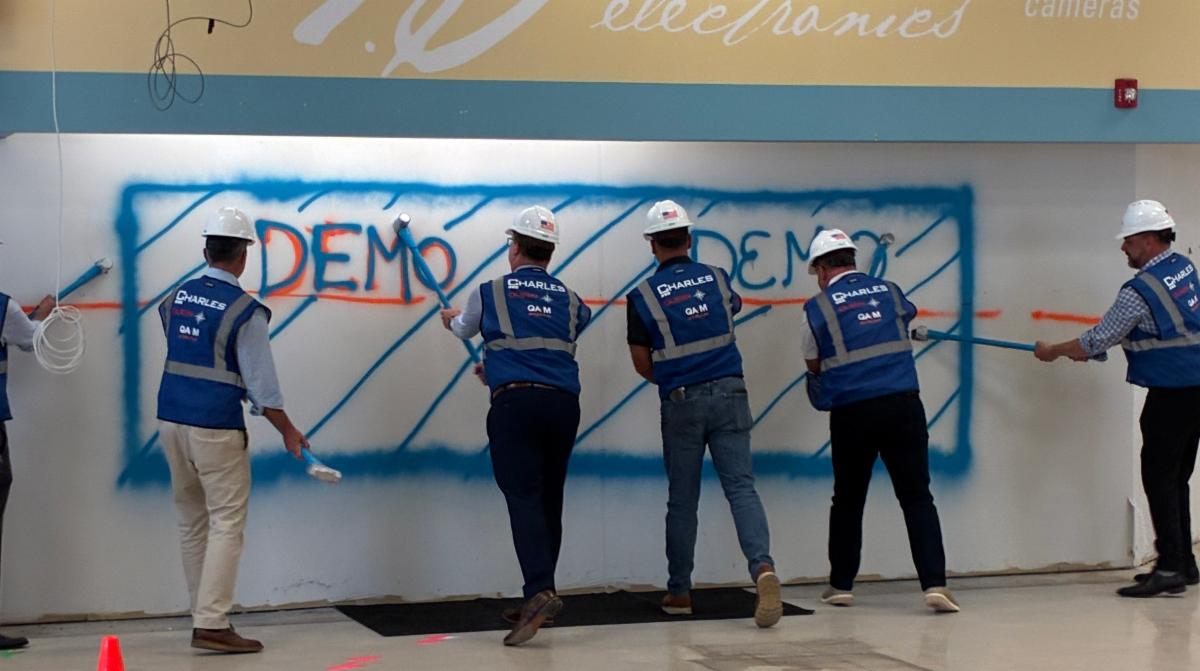
MIDDLETOWN BORN AND BRED: CharlesIT is Redevloping Former Retail for Company Headquarters
CharlesIT, like its founder, Foster Charles, was born and raised in Middletown and considers the city part of its DNA. So much so that when the company began to outgrow its current space on William Street, Foster set his sights on the former Rite-Aid building across from South Green. The building met his main requirements: it offers space for growth, is within one mile of a highway, and provides access to a walkable downtown area with outdoor space for employees. While other municipalities pursued the company, Foster was determined to stay in Middletown and return to Main Street, purchasing the building in May of 2024 with a vision for the company’s headquarters.
CharlesIT was founded in 2006 when Foster was still a senior at Middletown High School. Since then, it has been guided by a mission closely aligned with Foster’s personal ethos and sense of responsibility toward both customers and employees. The firm has experienced record-breaking growth, with a 30 percent year-over-year increase over the past five years. Now, with 120 employees in the Middletown office, Foster sees opportunities to double that number with the new space. After receiving a special zoning exception from retail use to professional office space, demolition officially began on May 13th to transform an initial 30,000-square-foot area for workspace during Phase One, with an additional 8,000 square feet available for Phase Two. Plans also include Mondo's expansion with a rooftop bar and dining area.
As artificial intelligence steps in and takes over, CharlesIT faces the challenge of staying one step ahead, adapting to a changing workforce and evolving client expectations while upholding its core values. “It’s a bit wild right now – like the Wild West – but we’re not abandoning our core mission of ‘making IT for humans, by humans’ as it has gotten us here, and will provide stability and opportunity going forward,” said Foster.
What are Tax Incentives?
Municipalities utilize tax incentives, which encompass various tax relief measures such as tax exemptions, tax credits, or tax abatements, to recruit and attract businesses to a community or support local businesses in their expansion efforts.
Tax exemptions are policies that lower the basis on which property is assessed by subtracting a specific amount of money from the assessed market value. They are often granted to individuals, institutions, or certain types of property.
Tax abatement refers to an exemption or reduction of local taxes on a project for a specific period. It involves contracts between a government entity and a real estate holder that stipulate a portion of the assessed value will not be taxed for an agreed time frame; a typical goal of tax abatement is to promote economic development.
Tax credits are amounts directly deducted from a tax bill after a tax liability has been incurred.
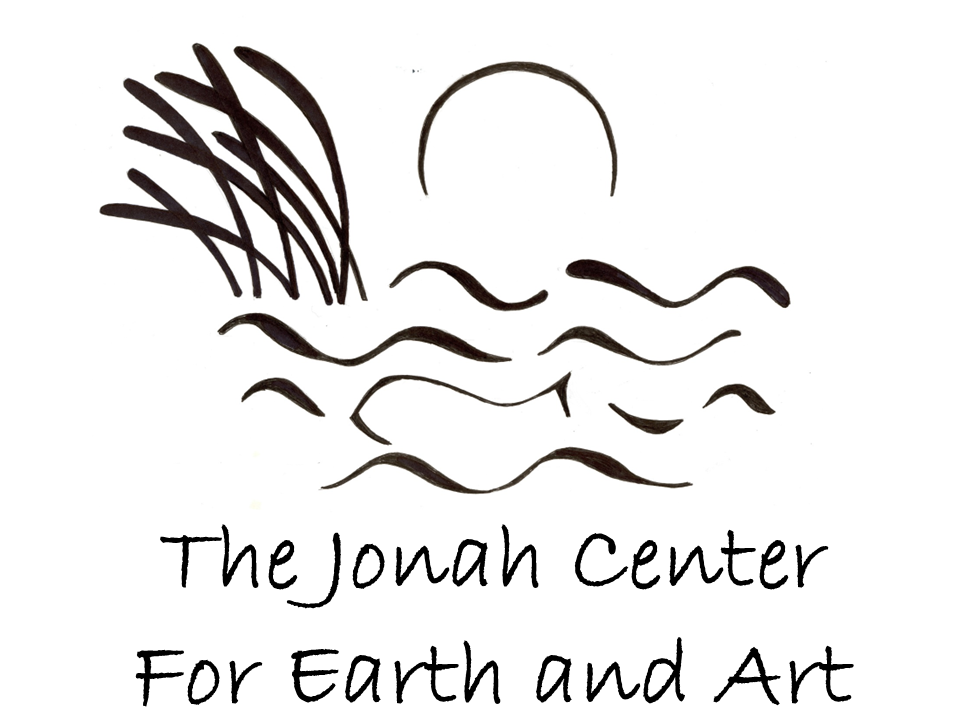
THE JONAH CENTER
The Jonah Center for Earth and Art was established in 2004 to promote sustainable relationships among people, other creatures, energy resources, and the environment while encouraging community partnerships in scientific, artistic, and various cultural endeavors. In fulfilling its mission, the Center’s goals include the conservation of natural resources, ‘smart growth’ and low-impact development, energy conservation and education, and sustainable living.
To achieve its mission, the Center unites key nonprofit and public organizations, including the City of Middletown, Wesleyan University, Middlesex Community College, Middletown Public Schools, the Town of Portland, and other environmental nonprofits, to collaborate for the common good. Since 2004, the Center has worked to protect waterways like the Coginchaug River and Floating Meadows; undertaken planning and advocacy to make Middletown and the surrounding communities more bike- and pedestrian-friendly; promoted state-sponsored energy efficiency programs; preserved open space; enhanced urban forestry; improved parks and other public spaces; and used artistic expression to connect people to the natural environment.
While specific projects receive funding from state, federal, and private grant resources, the Center depends on donations to sustain its work. To learn more about The Jonah Center and discover how you can support their mission, please visit their website and follow them on social media.

